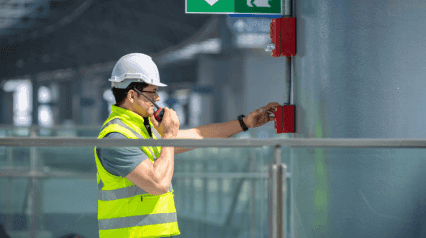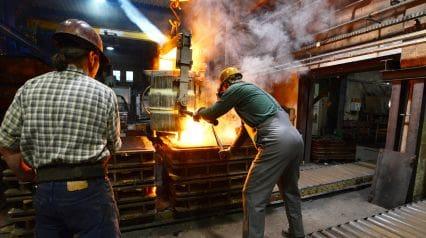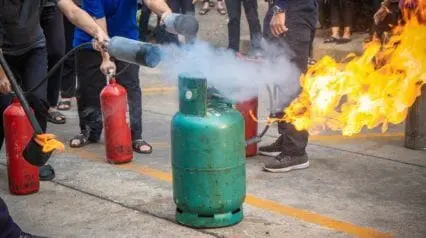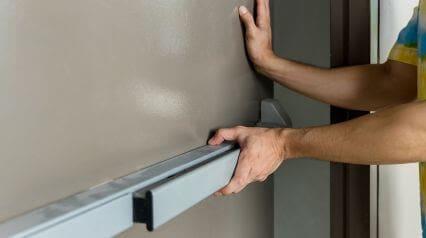What are Fire Safety Tips?
Fire safety tips are tidbits of information that can supplement fire safety practices of maintaining a secure and hazard-free environment to keep you and other people safe from fire accidents. Whether you’re an office manager, a worker in a public place, or a homeowner, it’s important to be well-informed about fire safety tips and other fire-preventive measures to maintain fire safety.
What are Fire Safety Tips?
Fire safety tips are tidbits of information that can supplement fire safety practices of maintaining a secure and hazard-free environment to keep you and other people safe from fire accidents. Whether you’re an office manager, a worker in a public place, or a homeowner, it’s important to be well-informed about fire safety tips and other fire-preventive measures to maintain fire safety.
What is the Purpose of Applying Fire Safety Tips?
Most fire incidents in residential and commercial spaces in the United States alone are caused by cooking accidents. Such cases are avoidable by following a proper fire safety guideline which will help you avoid damage to property and people safe within the premises.
Top 10 Fire Safety Tips
Here are the 10 important fire safety tips you need to know to keep your workplace and home safe.
Tip 1: Install smoke alarms
Place smoke alarms on every level of the premises, including storage, electrical room, bedrooms, and outside sleeping areas. Smoke alarms will need to be checked and tested on a regular basis to ensure functionality.
Tip 2: Create an escape plan
Develop an emergency fire escape plan with multiple exit routes from each room. Orient the escape plan with everyone in the place by placing legible signs and emergency fire exits, and designate a safe meeting point outside the premises. Ensure that fire exits and ladders are safe and free from obstructions.
Tip 3: Keep flammables away from heat source
Keep flammable materials away from heat sources that can potentially ignite the materials. Store them in approved containers and well-ventilated areas. Use caution when handling candles, matches, lighters, and other potential fire starters and never leave them unattended when in use. Keep them away from curtains and other flammable materials.
Tip 4: Practice safe cooking and fire safety in the kitchen
Never leave cooking unattended as well, especially when using stove tops or ovens. Keep flammable items, such as kitchen towels and curtains, away from heat sources. Learn about grease fires and how to douse them, never use water to put out a grease fire. Instead, simply close the lid to suffocate the flames from oxygen, or have a Class B Dry Chemical Fire Extinguisher easily accessible in your kitchen. Make sure to clean your oven and stovetop regularly to prevent grease buildup.
Tip 5: Use electrical appliances responsibly
Avoid overloading electrical outlets and extension cords. Unplug appliances such as ovens, flat iron, and washing machines when not in use and inspect cords for damage regularly. Regularly check electrical cords for fraying, damage, or overheating. Replace any damaged cords immediately, and avoid running cords under carpets. In the event of an electrical fire, immediately cut off the power supply if safe to do so and use a fire extinguisher suitable for electrical fires.
Tip 6: Maintain heating systems
Heating systems should have proper airflow and a safe space from anything that can burn. Have your heating systems, including furnaces and chimneys, inspected and maintained regularly by qualified professionals.
Tip 7: Use fire extinguishers and Maintain them properly
Familiarize yourself where your fire extinguishers are located in your home. Ensure that they are easily accessible, regularly inspected, and suitable for the types of fires common in the environment. Replace your fire extinguishers if deemed faulty and needed to be replaced.
Tip 8: Practice caution outdoors
Follow local regulations for outdoor fires, such as campfires and grilling. Extinguish fires completely before leaving, and never leave them unattended. Be mindful of dry conditions and the potential for wildfires.
Tip 9: Stay low and crawl to safety
During fire incidents, most of the fire-related deaths are caused by smoke inhalation of harmful particulates produced by fires. Avoid smoke and escape through another route. However, if you needed to evacuate through the smoke, you’d want to stay low and crawl to safety where the air is still cleaner around 12 – 24 inches above the floor. Using a disposable mask or respirators are handy, but an improvised wet towel also works.
Tip 10: Educate others about Fire Safety Practices
Educate your family members and your friends about the importance of fire safety at home, at work, and in public places. Teach them how fire prevention works and how to respond in case of a fire by conducting discussions about fire safety with qualified professionals.




